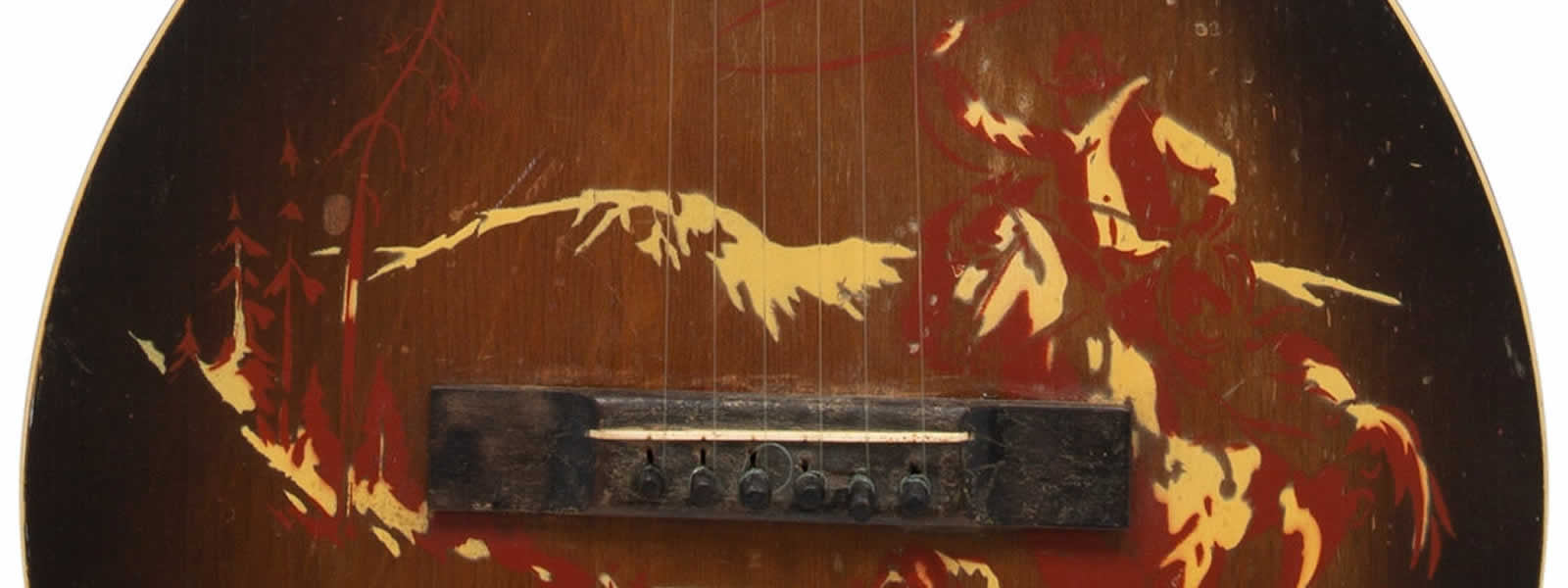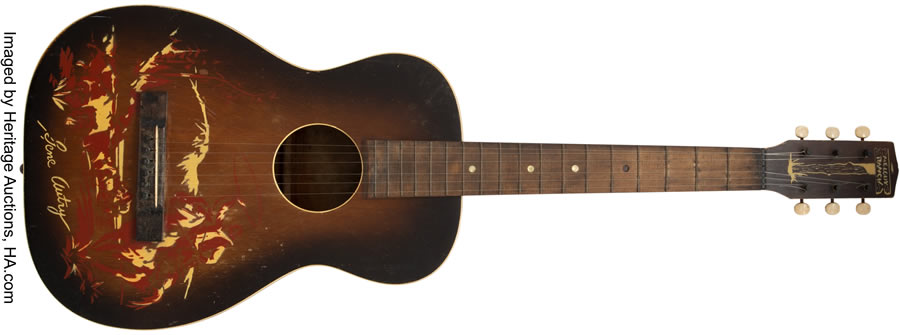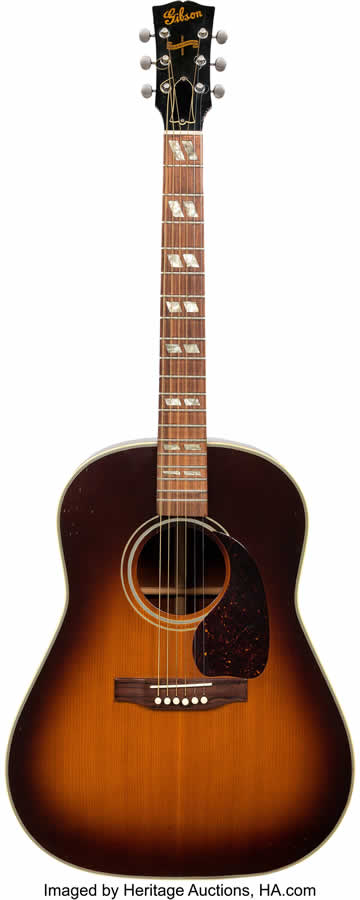GEORGE JONES’ CHILDHOOD ACOUSTIC, HANK WILLIAMS’ SIX-STRING TAKE CENTER STAGE
By Robert Wilonsky
EVENT
VINTAGE GUITARS & MUSICAL INSTRUMENTS SIGNATURE® AUCTION 7250
Nov. 7, 2021
Online: HA.com/7250
INQUIRIES
Aaron Piscopo
214.409.1273
AaronP@HA.com
They’re two of the greatest country singers and songwriters who ever lived – The Hillbilly Shakespeare from Alabama and The Possum from Texas. The former was idol and icon; the latter, his adoring acolyte.
Only once, in 1949, were Hank Williams and George Jones ever in the same place: a Beaumont, Texas, radio station, where a teenaged George stood slack-jawed while Hank played “Wedding Bells.” More than a decade later, Jones recorded two full albums’ worth of his hero’s songs: George Jones Salutes Hank Williams, released in 1960, and 1962’s My Favorites of Hank Williams. The musicians were kindred spirits: “Both affected generations with a plaintive veracity of voice that has set them apart,” the great rock critic Nick Tosches once wrote in Texas Monthly.
Which is why it’s such a thrill to reunite them one more time, for Heritage Auctions’ Nov. 7 Vintage Guitars and Musical Instruments Signature® Auction.
In this event, collectors will find instruments owned and played by both country music immortals: Jones’ very first guitar, gifted to him when he was a child in Beaumont, and one of Williams’ six-strings dating back to 1945. Here, too, is a fiddle likewise owned by Williams.
“These instruments have a lot of history in them,” says Aaron Piscopo, Heritage Auctions’ director of Vintage Guitars & Musical Instruments. “The country music genre has been around longer than rock and roll, and rock music wouldn’t exist without country. Having these in our auction is a tremendous honor.”
Jones’ guitar is a Harmony Gene Autry-model Melody Ranch acoustic, which was purchased by his dad when his son was but 9 years old. Sears manufactured and sold countless Autry guitars between 1932 and 1950, but there’s only one that has “George Jones Beaumont, Texas 11” carved in the back – the young Possum’s proof that this was his guitar, an instrument he so loved he would carry it to school every day.
“After my dad got me my first little guitar, I wouldn’t lay it down, hardly,” Jones once told The Tennessean. “I took it to school with me. I’d hide it in the woods and cover it with leaves, and if a big rain came and it got wet, I’d pour the water out of it. Them guitars never warped.” (This, in fact, was one of Harmony’s chief selling points – the near-indestructability of its instruments, which is why it’s not uncommon to find them online to this very day.)
Jones played that very guitar on the streets of Beaumont for tips, eventually moving at age 16 to nearby Jasper, where he worked as a singer at KTXJ-AM and “nurtured his admiration for the music of Hank Williams,” per Jones’ official website. In time, of course, he became only one of country music’s most towering immortals.
The guitar didn’t experience quite the same renown and disappeared for decades, as so often happens to the first tool of the craftsman only learning to swing a hammer. By happenstance it was discovered hanging on the wall of an artist in the hills of West Kentucky, which sparked a quest to prove this was in fact Jones’ childhood instrument. Clifford Rolwing, the man who realized the significance of his find, documented his investigation on a website and in the self-published book I Was Lost! Now I’m Found: The Real Discovery Story of George Jones’ First Guitar.
The circa-1945 Gibson Banner SJ acoustic once owned by Jones’ idol Hank Williams was on display at the Songwriters Hall of Fame in Nashville for about a decade, beginning in the late 1970s, because its provenance is impeccable.
The guitar comes from the collection of the late Jim Owen, the hit-making singer, songwriter and actor who twice portrayed Williams – first in the award-winning 1976 hourlong PBS special Hank, then again in the 1980 film Hank Williams: The Man and His Music, for which he received an Emmy nomination. A friend of Owen’s owned the guitar, and gifted it to the performer often referred to as the country great’s doppelgänger.
The Vuillaume Paris fiddle, too, with bow and case, was gifted to Owen, who, like George Jones, recorded Williams’ music and considered him the sage of American music.
“These instruments deserve a good home,” Piscopo says. “We’re happy to help find them a new place to be admired and loved and, once again, played.”
 ROBERT WILONSKY is a staff writer at Intelligent Collector.
ROBERT WILONSKY is a staff writer at Intelligent Collector.



